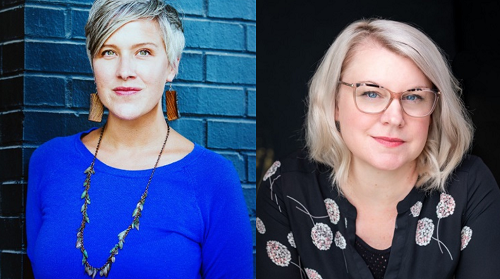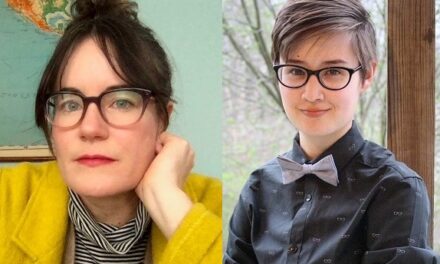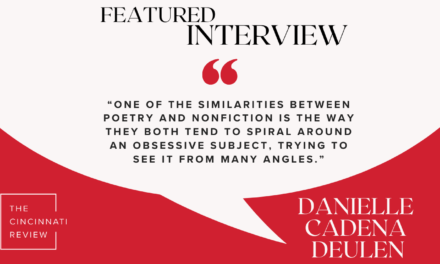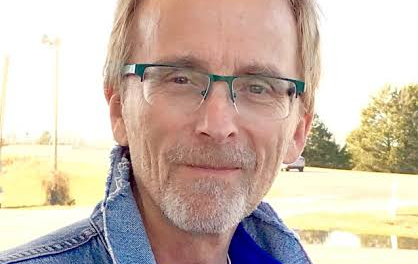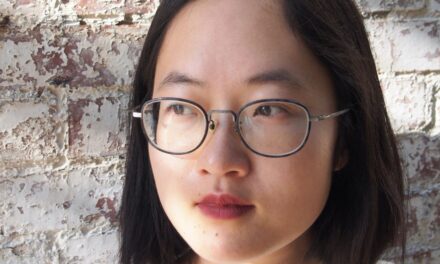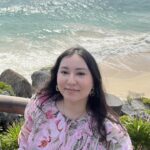Managing Editor Lisa Ampleman: It’s become a tradition for the first reading of the academic year in the Visiting Writers Series at UC to feature alumni of the creative writing program, and this year is no different: doctoral graduates Dr. Kristi Maxwell and Dr. Molly Reid are returning to read their poetry and fiction, respectively, this Thursday, Sept. 7, at 5:30 p.m. in the Elliston Poetry Room on the fourth floor of Langsam Library. The reading is free and open to the public.
I have the luck of knowing both readers: Kristi and I overlapped in the doctoral program for a year and even had a workshop together with Elliston Poet Alice Fulton in the spring of 2010. And Molly Reid worked at the Cincinnati Review from 2017–2019, so I got to work with her! I asked each two questions about the writing life:
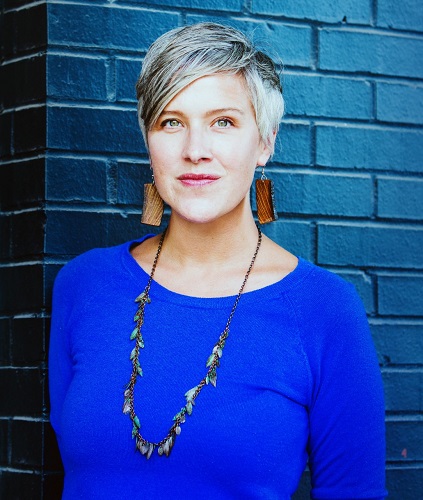
Kristi Maxwell is the author of eight books of poems, including Goners (Green Linden Press, forthcoming 2023), winner of the Wishing Jewel Prize; My My (Saturnalia Books, 2020); Realm Sixty-four (Ahsahta Press, 2008); and Hush Sessions (Saturnalia, 2009). She’s an associate professor of English at the University of Louisville and a 2022–23 American-Scandinavian Foundation Fellow.
How did your time at UC affect you as a writer?
My time at UC affected my writing life because it exposed me to so many new kinds of thinking, especially in the critical theory courses taught by Beth Ash, the feminist theory courses taught by Lisa Hogeland, and the cultural studies courses taught by Jana Braziel. I am forever indebted to the care they took working through dense material and ideas. For me, new thinking always leads to new writing.
What kinds of things have been feeding your creative side lately (books, TV, film, natural things, people, etc.)?
Walking (an enduring aid), the documentary Fire of Love, the “o” section of the dictionary, mushroom identification, lap-swimming, discussions about poetry with students, and classes in Ancient Greek (I’m currently enrolled in Greek 301).
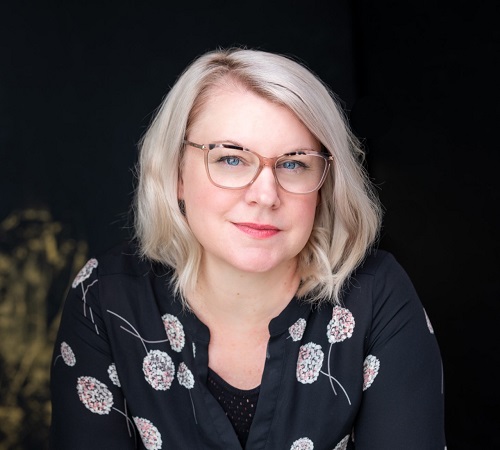
Molly Reid’s collection of short fiction, The Rapture Index: A Suburban Bestiary, won the seventh annual BOA Short Fiction Prize and was published in BOA’s American Reader Series in spring 2019. Her stories have appeared on NPR and in the journals TriQuarterly, Crazyhorse, Gulf Coast, and The Normal School, among others. Her nonfiction can be found online at Lit Hub and Ploughshares. She has received support from the Sewanee Writers’ Conference, the Bread Loaf Writers’ Conference, PLAYA, the Anderson Center, the Millay Colony for the Arts, the Ucross Foundation, I-Park, and the Virginia Center for the Creative Arts.
How did your time at UC affect you as a writer?
My time at UC affected me as a writer in so many ways, some of them anticipated (or at least hoped for), some (pleasantly) surprising. Coming into the program, I hoped for the time and support to write a novel, to improve my writing, to be part of an academic and writing community, and to further develop my understanding of and ability to talk about craft. I definitely gained all that.
What surprised me was the way my time at UC opened me up as a writer to different genres and approaches to process. There was so much encouragement to find what it is you want to do and do it. That sounds simple, but I actually think it’s pretty rare. I’m not talking about a free-for-all laissez-faire pedagogy, but guidance in gaining the particular craft tools and informed approach to whatever it is you’re trying to do in your current project. Want to write a ghost story or sci-fi, romance, literary mystery? Find writers who are working in those genres, who are using those tools, and break down what they’re doing and how they’re doing it. Apply those insights to work that doesn’t fit neatly in those genres. Fail, try again. There was an egalitarian, workhorse ethos that surprised me, and from which I’ve benefited tremendously as a writer. Side effects of this include less literary snobbery and more confidence in my abilities as a writer. It’s okay to struggle with something, to feel, even, that I’m not capable enough to pull something off. It’s work. Figure it out.
What kinds of things have been feeding your creative side lately (books, TV, film, natural things, people, etc.)?
Long walks in Forest Park (my favorite part of Portland). Taxidermy. True crime podcasts. Writing podcasts. Crows. Moss. Pat Benatar music videos. So many novels . . . right now, I’m reading Rumaan Alam’s Leave the World Behind, which I am (somewhat equivocally) digging so far. The last novel I read that thrilled me was Patricia Wants to Cuddle by Samantha Allen, a reality-dating-show-queer-bigfoot romp. Highly recommend. I’m also currently reading Stephen Marche’s The Next Civil War, which imagines five different scenarios for the next American civil war, grounded in research and history. It’s not exactly hopeful reading, but it’s helping me think through some things in my current work-in-progress—it also does the job of inspiring me to write this book before the whole world goes up in flames.

